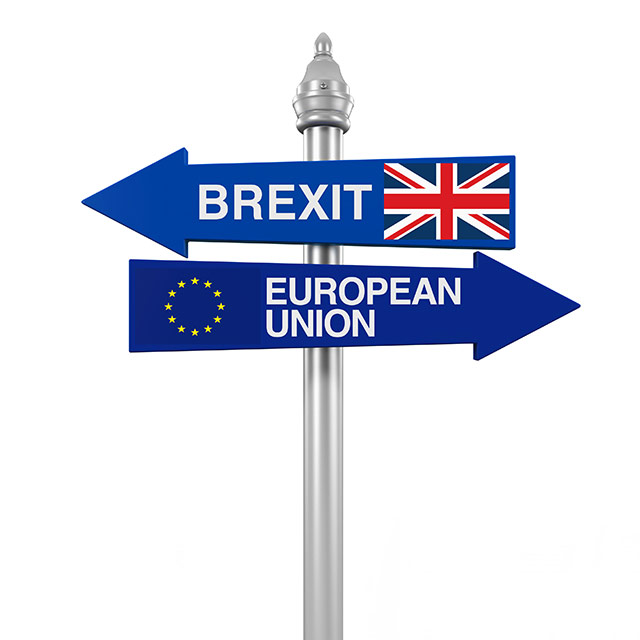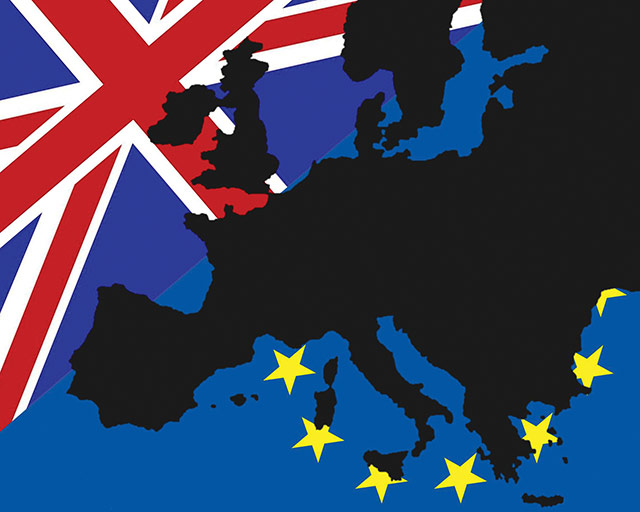Brexit impact
 After campaigning for a Brexit, First Minister Arlene Foster now jointly leads a Northern Ireland, where a majority voted to remain, into negotiations to take the UK out of Europe. agendaNi analyses some key areas that will be impacted locally.
After campaigning for a Brexit, First Minister Arlene Foster now jointly leads a Northern Ireland, where a majority voted to remain, into negotiations to take the UK out of Europe. agendaNi analyses some key areas that will be impacted locally.
The impact of Britain’s decision to opt out of the European Union has already proven its ability to change and disrupt the global financial markets. Locally, the definitive impact on each of the sectors is unclear but a general consensus exists that Northern Ireland’s unique situation could see it de-stabilised. One of the major reasons behind this is Northern Ireland’s dependence on foreign direct investment. As the UK’s second highest region for attracting inward investment, behind London, the investments of multi-national companies enjoying access to the single market is pivotal to the growth of a range of sectors helping to grow the Northern Ireland economy.
In the short-term, uncertainty is expected to slow down levels of investment in Northern Ireland and there are questions over whether the long-awaited lowering of corporation tax, expected by 2018, will be beneficial if the Republic of Ireland and a potentially independent Scotland prove more attractive to outside investment. The implications are also huge for the tourism sector who rely heavily on growing numbers of overseas visitors. The result of the referendum damaged the pound initially but its strength over the next few years against the Euro and the Dollar, in particular, will impact on visitor numbers. A short-term benefit could lie with exporters of price sensitive goods and tourists from the Eurozone taking advantage of the weak pound but the loss of Britain as a financial contributor to the EU market could also have longer term impacts on the strength of the Euro, making Ireland as a whole less attractive for visitors.

The latest paper on Northern Ireland’s tourism strategy to 2025 points to Northern Ireland enjoying increased levels of tourism because of ease of access from the Republic of Ireland but also a need to promote improved infrastructure and connectivity between the two. Any implementation of a fixed border or additional waiting times at ports, airports and points of access will affect tourism numbers and hamper Northern Ireland’s ability to promote itself. A fixed border will also have an impact on the agri-food and transport industries, who rely heavily on the free flow of goods and labour to their closest neighbouring market.
A question mark also remains over the future of EU structural funds. After the referendum Interreg Europe, managed by the Special EU Programmes Body (SEUPB) described their next steps as “uncertain” and said that project partners from the UK should “continue implementing their activities”. The Interreg VA programme for 2014-2020 is worth €283 million to promote greater levels of economic, social and territorial cohesion across Northern Ireland, the Border Region of Ireland and Western Scotland. Other structural funds, which will now need defined, include the European Regional Development Fund (ERDF); the European Social Fund (ESF); The European Agricultural Guidance and Guarantee Fund (EAGGF), the Financial Instrument for Fisheries Guidance (FIFG) and the European Territorial Cooperation (ETC) Programme’s Peace IV Programme.
The future of wholesale electricity in Ireland will also come under the microscope following the UK’s decision to leave. The Single Electricity Market (SEM), the first cross-border market in Europe, which is jointly regulated by the Commission for Energy Regulation (CER) in Dublin and the Utility Regulator (UReg) in Belfast, has been successful in delivering a competitive wholesale electricity price across the island since 2007. However, a move by Europe to create wider regional markets started in 2014 and a new model integrating the UK, Irish and French electricity markets (I-SEM) are nearing completion and were expected to be live by the end of 2017.
Back in 2014 OFMDFM estimated that over two-thirds of administrative and legislative actions in Northern Ireland “originate from, or are influenced by, decisions taken in Brussels” and wide-ranging European legislation on environmental issues such as air and water pollution, waste treatment, noise and danger conservation have been implemented. The UK may choose to continue with the directives, much of which are now domestic law, however risk of penalties and strict regulation may no longer exist.
All of these details and many more will have to be negotiated and discussed when the UK begins talks with Brussels, initiating its removal. Northern Ireland has the difficult challenge of pushing itself to the front of the queue to have its demands heard through an Executive that was split over whether to leave or remain. Sinn Féin have called for a border poll, believing that an exit from Europe will damage Northern Ireland but First Minister Arlene Foster said Brexit offered the opportunity for “ambition, innovation, flexibility and imagination” she said. “My focus is doing what’s right for all the people of Northern Ireland in terms of the negotiations which are coming up very soon”.





